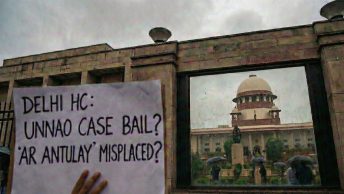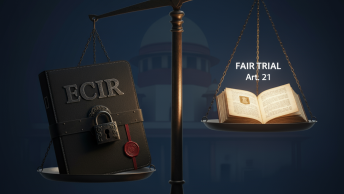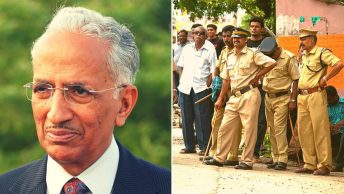The introduction of the new criminal laws was met with considerable uproar and (well-founded) opposition. A substantive analysis of the new legislations reveals that in addition to renumbering the provisions, the Bharatiya Nagarik Suraksha Sanhita, 2023 (“BNSS”), which replaces the erstwhile Code of Criminal Procedure, 1908 (“CrPC”), has introduced Section 173(3), which empowers the police to conduct a preliminary inquiry in a certain class of cognisable offences before registration of a First Information Report (“FIR”). The introduction of S.173(3) is a codification of the principles laid down by the Supreme Court in Lalita Kumari v. State of Uttar Pradesh (“Lalita Kumari”).
At first blush, allowing for a preliminary inquiry to be conducted in suitable cases would ideally prevent the registration of malicious or arbitrary FIRs, but there is a catch. The language of S.173(3) and the discretion it provides effectively enables police officers at the first instance to delay registration of an FIR, even if a complaint relates to the commission of a cognisable offence. Consequently, the risk of misuse of this provision by unscrupulous officials in everyday policing is ever present.
This abuse of authority is more rampant in circumstances when the complainant / first informant is a member of a historically marginalized community. Various reports and surveys on policing practices consistently show reveal that officers often act in excess of their authority when registering FIRs, including instances of willful refusal to register an FIR. The enactment of S.173(3) could very possibly serve as another tool in the police’s arsenal to delay and frustrate attempts by individuals who may seek enforcement of their rights.
While the Union government has framed and formulated a Standard Operating Procedure (“SOP”) for conducting such preliminary enquiries under the BNSS, it remains to be seen whether police officials can be sanctioned for failing to comply with the terms of such SOPs. This piece
- Origins of the preliminary inquiry
Lalita Kumari is the first authoritative pronouncement by the Supreme Court on the scope of conduct of a preliminary inquiry. The issue for consideration in the case was whether a police officer is bound to register an FIR upon receipt of any information relating to the commission of a cognizable offence or whether the police officer has the power to conduct a ‘preliminary inquiry’ to test the veracity of such information before registration of an FIR.
The Court held that if a complaint discloses the commission of a cognisable offence, the police must mandatorily register an FIR, and that no preliminary inquiry is permissible under such circumstances. At the same time, the Court acknowledged the possibility of miscreants abusing the criminal justice system, resulting in the registration of frivolous FIRs’.
As such, the Supreme Court identified certain exceptions to the rule of mandatory registration of FIR, and in such cases, a preliminary inquiry may be conducted. These exceptions include, but are not limited to:
- Matrimonial disputes/family disputes
- Commercial disputes
- Medical negligence cases
- Corruption cases
- Cases where there is an abnormal delay in the institution of criminal proceedings (more so in cases where the complainant / first informant fails to offer a satisfactory explanation for the delay)
The Supreme Court in a slew of decisions have since clarified that an accused cannot claim for the conduct of a preliminary inquiry as a matter of right, and that it is not the position of law that criminal proceedings ca nnot be instituted in the absence of a preliminary inquiry. (see: State of Telangana v. Managipet; Pradeep Nirankarnath Sharma v. State of Gujarat & Ors.; State of Karnataka v. T.N. Sudhakar Reddy)
- Ambiguities in the language u/S.173(3)
Section 173(3) states that upon receipt of any information relating to the commission of a cognizable offence, which is made punishable for three years or more but less than seven years, the police officer may, with the prior permission of an officer not below the rank of a DSP, considering the nature and gravity of the offence, proceed to conduct a preliminary inquiry to ascertain whether a prima facie case exists. Such a preliminary inquiry is to be conducted within fourteen (14) days.
Unchecked discretion in the hands of the police
This discretion offered to the police officer u/S.173(3), despite the receipt of information relating to the commission of a cognizable offence, sits in direct contravention to the law laid down in Lalita Kumari, which states that the disclosure of commission of a cognizable offence warrants the mandatory registration of an FIR, and no preliminary inquiry is permissible under such circumstances.
The additional discretion u/S.173(3) insofar as it defers to the “nature and gravity of the offence” as opposed to prioritizing reliance on the existence and availability of sufficient information relating to the commission of an offence is again contrary to Lalita Kumari. The BNSS does not define what factors constitute the determination of “nature and gravity” of an offence, and to permit police officers to determine the sufficiency (or lack thereof) of the same invites the possibility of abuse of the provision.
Furthermore, the use of the words prima facie case in S.173(3) could result in situations where the officer may conduct a mini trial to determine whether such a prima facie case exists or not. The Supreme Court has consistently held that the scope (or objective) of a preliminary inquiry is not to verify the veracity of the information received but only to ascertain whether the information reveals the commission of a cognizable offence.
Interplay (or lack thereof) between Preliminary Inquiry and Investigation
Furthermore, the BNSS fails to clarify whether a preliminary inquiry u/S.173(3), BNSS forms a part of “investigation” as defined under the BNSS or is a preliminary step that remains distinct from the rigors of investigation.
Interpretation of S.173(3) will have important implications for S.180 & S.181 BNSS, which talks about the power of a police officer to examine witnesses, which can then be used in the course of trial. The admissibility and use of any such statements collected from witnesses as a part of the preliminary inquiry is dependent on the question of whether such an inquiry forms part of the larger “investigation” as defined under the BNSS. The same remains unanswered by S.173(3)in its current form.
Statutory Exceptions to conduct of Preliminary Inquiry
It would be pertinent to state that Section 18A of the Scheduled Castes and Scheduled Tribes (Prevention of Atrocities) Act, 1989, categorically states that no preliminary inquiry shall be required for the registration of an FIR for offences under the Act. The position has been recently affirmed by the Supreme Court in Amit Kumar v. Union of India. Furthermore, S.199(c) of the BNSS makes it punishable for the police to fail to record information on offences against women and children. As such, these classes of offences would remain exempt from the application of S.173(3)
- Legitimizing police excess?
The introduction of a statutory prescription enabling preliminary inquiry invites the possibility of its abuse. These apprehensions are not unfounded. In Lalita Kumari, the Supreme Court, referring to the V.S. Malimath Committee on Reforms of Criminal Justice System and 2012 National Crime Record Bureau statistics, remarked that the number of FIRs not registered is approximately equal to the number of FIRs actually registered.
An internal survey conducted by the Maharashtra State Police revealed that in 50% of the cases, police stations refused to register an FIR despite the offences being cognisable in nature (or burking as it is called). It was further revealed that in numerous cases where FIRs were registered, the police would deliberately minimize the offences as originally reported by applying non-cognisable sections. This was done to delay the commencement of investigation, to ensure that pendency rates did not increase in their official statistics.
The failure in timely registration of an FIR and recording of detailed statements of the complainant and eyewitnesses at the first instance can result in grave prejudice to the case of the complainant. Delays can result in memories fading, which leads to potentially inaccurate or incomplete factual narration of events, which can directly hamper the quality of investigation and subsequent prosecution.
Prejudicial Policing
Any such abuse of S.173(3) is only bound to disproportionately affect complainants / first informants who may: (i) be economically disadvantaged, (ii) belong to a religious or ethnic minority, (iii) migrants, (iv) belong to a historically marginalized community. Such individuals are unlikely to possess the necessary social or economic capital, such as engagement of competent and well-connected legal counsel(s), which has now become a requirement in being able to effectively deal with police authorities.
A research project studying the non-registration of crimes (sponsored by the Bureau of Police Research & Development, Ministry of Home Affairs) identified that victims of non-registration of crimes are individuals who belong mostly to poor or marginalized sections of society, particularly women and individuals from low-income groups. A Report by the University of Delhi while examining human rights enforcement at grassroot levels noted that caste-based inequalities had a dramatic influence on policing and the manner in which they treated first informants/complainants who were Muslims or were members who belonged from a Scheduled Caste or a Scheduled Tribe.
Status of Policing in India Report 2025, published by Common Cause reveals that significant proportions of police personnel believed that (i) Muslims, (ii) slum dwellers, (iii) individuals belonging to Dalit & Adivasi communities, (iv) people belonging to Nomadic Tribes or De-Notified Tribes and (v) migrants were more likely to be ‘naturally prone’ to committing crimes. These inherent prejudices reveal that the police would therefore be less likely to intervene or act basis complaints which may be filed by such individuals.
During the 2020 Delhi Riots (which arose out of demonstrations against the Citizenship (Amendment) Act, 2019), Muslim victims of abuse, and witnesses to the violence reported that when they approached police stations to file official complaints, almost all of them were turned away with threats of implicating them in false cases, should they choose to persist. In cases where action was eventually taken, names of political leaders and police officials who were complicit in the attacks were deliberately omitted.
SOP for Preliminary Inquiries raises more concerns than it addresses
The Ministry of Home Affairs (“MHA”), in an attempt to streamline the application and enforcement of S.173(3) has issued a Standard Operating Procedure (“SOP”) which seeks to regulate the conduct of preliminary enquiries under the BNSS.
The SOP (i) fixes timelines within which permissions are to be sought for the conduct of the preliminary inquiry, (ii) states that all steps taken in the course of a preliminary inquiry is to be thoroughly documented, (iii) proceed with registration of FIR incase preliminary inquiry is not completed within 14 days, and (iv) identifies possible courses of action in the event an officer fails to complete the inquiry within 14 days, including initiation of departmental action.
However, the preface to the SOP states that the document is a suggested guideline, making it an administrative document at best. Furthermore, the SOP does not derive its authority from any provision of the BNSS, nor is it an enactment passed by the legislature, making it unenforceable in a court of law. As such, there is no penal action which can be sought to be instituted against an errant police official, should they fail (or refuse) to comply with the 14-day timeline.
Furthermore, police documentation, no matter how meticulous, can always be tampered with. Police officers on multiple occasions have been found guilty of tampering with official records such as station diaries and police log books, to show that they followed proper procedure and protocol at all times.
- Parting thoughts
There is no doubt that a preliminary inquiry, if done right and in strict adherence to the terms of the SOP framed by the MHA should ideally help filter, and eventually discourage frivolous complaints at the threshold, enabling the police establishment to better focus its resources. However, practical realities of everyday policing seem to suggest otherwise.
In addition to the above identified perils, S.173(3) in its current form invites the potential for abuse in two obvious scenarios (i) errant officials who may refuse to register FIR’s and instead subject the complainant through the harassment of having to participate in a preliminary inquiry, or (ii) mischievous complainants who may deliberately set the criminal process in motion through the use of S.173(3) in an attempt to intimidate a counter-party into doing (or not doing) something.
The Supreme Court has time and again held that the invocation of the criminal machinery is a serious matter. It is pertinent that the statutes (which have been accused of being hastily enacted) are suitably amended in the near future to ensure that the rights of all stakeholders are adequately protected, through enforceable means, and not just empty words.
Abhay Shetty is an advocate practising in Bengaluru. He is currently an Associate at AZB & Partners with the Firm’s Dispute Resolution Practice.
Credits for the cover image be given to Ishan Tankha.
[Ed Note: The piece is edited by Jeetendra Vishwakarma and published by Vedang Chouhan]






